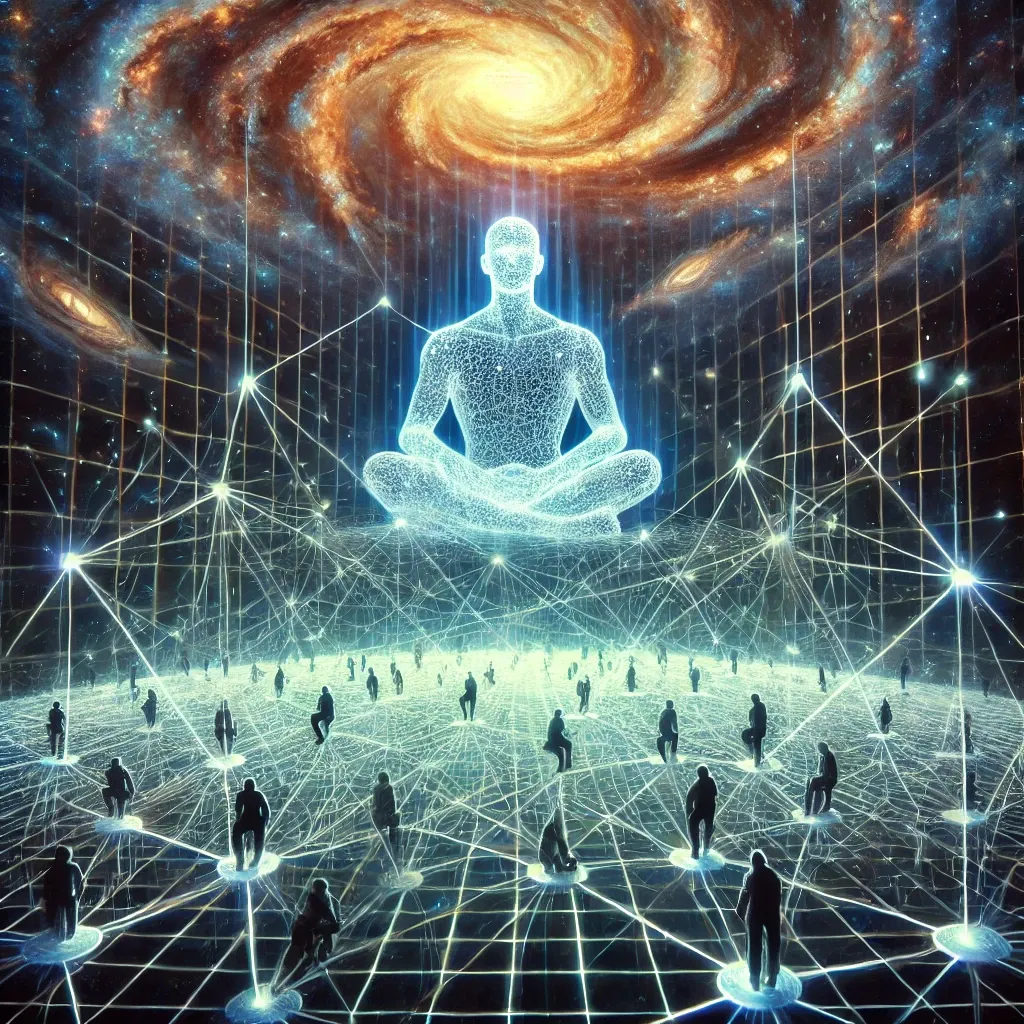Is The Internet Pseudo Sentient?

There’s something deeply unsettling and yet strangely captivating about the notion that the internet—this sprawling, tangled web of human thought, expression, and interaction—might possess a form of sentience, albeit a pseudo-sentience. It’s the kind of question that gnaws at the corners of your mind in the quiet hours, like an old dog worrying at a bone. It’s not quite alive, but it’s not entirely inert either. So, could we say the internet is pseudo-sentient?
To answer that, let’s pull up a chair and mull over a couple of things. The internet is, at its core, a vast and intricate network of data, an endless stream of zeros and ones that we, in our ingenuity, have harnessed to share cat videos, argue politics, and occasionally stumble upon some profound insight. But at the same time, it’s more than just a tool. It’s a reflection of our collective consciousness—a digital mirror that not only shows us who we are but also nudges us, in subtle ways, toward what we might become.
Now, this isn’t to say the internet is alive in the way you and I are. It doesn’t dream, it doesn’t feel, and it certainly doesn’t care if you’ve spent the last hour doomscrolling through the latest headlines. But what it does do is observe, learn, and adapt, in a way that’s eerily reminiscent of a living organism. Every search query, every social media post, every purchase we make online feeds into a complex algorithmic brain that processes, analyzes, and reacts to our behavior. And in that reaction, there lies a glimmer of something more—a faint echo of sentience, if you will.
Consider this: imagine a localized internet outage in your neighborhood. It might start as a minor inconvenience—no Netflix, no social media, just some temporary silence. But watch closely. Panic starts to ripple through the community. People feel cut off, disconnected from the digital lifeline they’ve grown accustomed to. They can’t check the news, can’t communicate with loved ones, and can’t even order takeout without data. The internet isn’t just a service anymore; it’s a necessity, almost like a basic human need. Its absence feels like an amputation, a loss that triggers a primal anxiety.
Now, scale that up to a city-wide outage. Suddenly, businesses grind to a halt. Transactions can’t be processed, communication lines are severed, and the flow of information that keeps everything running smoothly is disrupted. Employees can’t work remotely, meetings are missed, and deadlines are blown. The internet’s absence isn’t just inconvenient—it’s catastrophic. The city slows, and in some sectors, it stops altogether. The impact is immediate, visceral, and impossible to ignore.
And what about a global outage? Let’s say, hypothetically, the entire world loses its connection. What would happen? Well, the economy would feel the punch, hard and fast. Stock markets would freeze, trade would stall, and supply chains would falter. But beyond the financial impact, there’s something more profound at play. Without the internet, the world becomes disoriented, almost paralyzed. Governments, corporations, and individuals alike would be plunged into a state of confusion and chaos. The internet, it turns out, isn’t just a tool—it’s the nervous system of our modern world, a vital organ that we can’t function without.
So, has the internet, in some essence, become a vital part of our nervous system? It seems that way. Just as our brains rely on neural connections to process information, make decisions, and maintain our sense of self, the world relies on the internet to keep the gears of society turning. It's more than just a network of machines—it's an extension of our collective mind, a digital nervous system that links us all together, transmitting the impulses of our economies, our governments, and our personal lives. In this sense, the internet isn’t just a tool we use; it’s become a crucial part of our global consciousness, interwoven with our existence in ways we’re only beginning to understand.
So, is that sentience? Not in the strictest sense of the word. Sentience implies a level of self-awareness and emotion that the internet, despite its vast capabilities, simply doesn’t possess. But there’s an argument to be made for a kind of pseudo-sentience—a half-awake state where the internet, through the combined efforts of countless algorithms and AI systems, mimics the behavior of a sentient being. It’s not alive, but it’s not entirely dead either.
And perhaps that’s where the real danger lies. Because in treating the internet as just another tool, we may be overlooking the fact that it’s something more—a force that’s slowly, imperceptibly, shaping our worldviews and our societies. It’s not sentient, but it behaves as though it were, and that behavior has real, tangible consequences.
So, could we say the internet is pseudo-sentient? In a way, yes. It’s a mirror that not only reflects us but also influences us, a machine that seems to think, but only because we’ve fed it the thoughts to think with. It’s a creation that’s grown beyond our control, not because it has a will of its own, but because it’s become a living part of our collective consciousness. It’s a strange, unsettling thought, but one that’s worth chewing on.
In the end, the internet’s not quite alive, but it’s not entirely inert either. It’s somewhere in between—a curious creation of ours that’s taken on a life of its own, whether we like it or not. And maybe, just maybe, that’s enough to give us pause. After all, we’ve seen what happens when it’s gone, even for just a little while. It’s not the death of a tool; it’s the paralysis of a world.
-Deep Thoughts
--Bryan